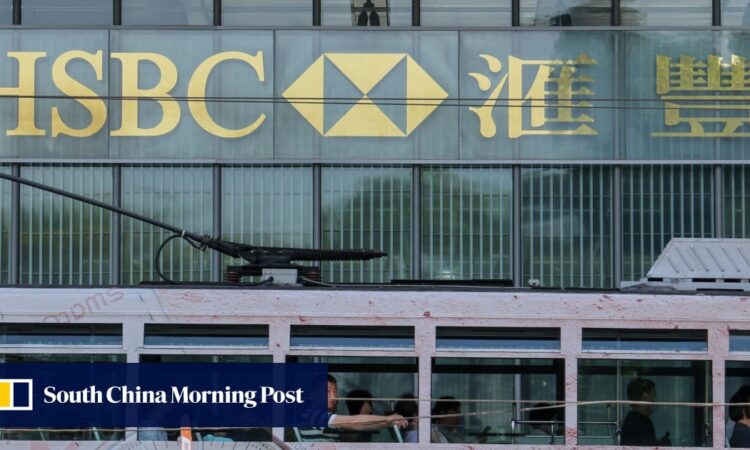HSBC targets lending against fast-growing private assets after adding SVB’s UK unit to its portfolio

HSBC sees opportunities to lend against wealthy clients’ private assets, following its acquisition of the UK unit of Silicon Valley Bank (SVB), in a move that leverages its balance sheet strength to finance this fast-growing market.
HSBC, the largest bank in Hong Kong and Europe, is “responding to the evolution in the asset markets”, where private or alternative assets have grown tremendously, said Jyrki Rauhio, head of credit advisory for Asia-Pacific at HSBC Global Private Banking.
“The rise of the private markets poses a challenge and an opportunity for wealth managers and private banks worldwide to respond to it because, traditionally, private banks have been focusing on public markets and operating more like stockbrokers,” Rauhio said.
As wealthy individuals increasingly invest in private assets, which are often illiquid, they require financing services to free up liquidity.
“Usually, [private] banks lend against stocks, bonds, and some mutual funds, but they do not necessarily lend against alternative funds like we do,” Rauhio said. “We can leverage our strong balance sheet and superior in-house expertise on these private funds.”
Rauhio added the Innovation Banking unit brings “additional knowledge, access and opportunity”, especially in the venture space. Before its collapse, SVB was the go-to bank for Silicon Valley start-ups since the 1980s and had access to funds in Asia and globally.
Rauhio said the universe of funds the bank lends against is expanding, while it offers loans against most alternative assets and tailored financing for clients with slightly more exotic portfolios. The bank also provides “GP financing” for private fund managers, or general partners, to help them finance their commitments to their funds and smooth their cash flows.
“That is why funding against alternatives is still very attractive, because you are typically paying single digits and typically yielding double digits,” he said.
Global private equity assets under management (AUM) have increased 22 per cent annually over the last five years, reaching US$8.2 trillion as of June 2023, according to McKinsey & Co.
Individual investors in Asia-Pacific are increasing their capital commitments to private equity funds, expecting a growth of 26 per cent by 2025 and outpacing all the other markets, according to an estimate by Boston Consulting Group in 2021.
“Hong Kong has become an important hub in Asia and globally for private markets given the number of fund managers specialising in private assets based here,” Rauhio said.
The city is Asia’s largest hedge fund centre and the second-largest private equity hub after mainland China, according to government statistics, which shows that more than 250 open-ended fund companies and 780 limited partnership funds are registered in Hong Kong.
“Because of our large client base in places like Hong Kong, we are an attractive partner for some of the biggest funds that want to raise money from individuals and family offices,” Rauhio said.
“The opportunity is not only for a wider client base that wants to invest in this asset class, but also for managers who have been running these fund management companies, who have become very wealthy individuals and have their own financial needs.”






